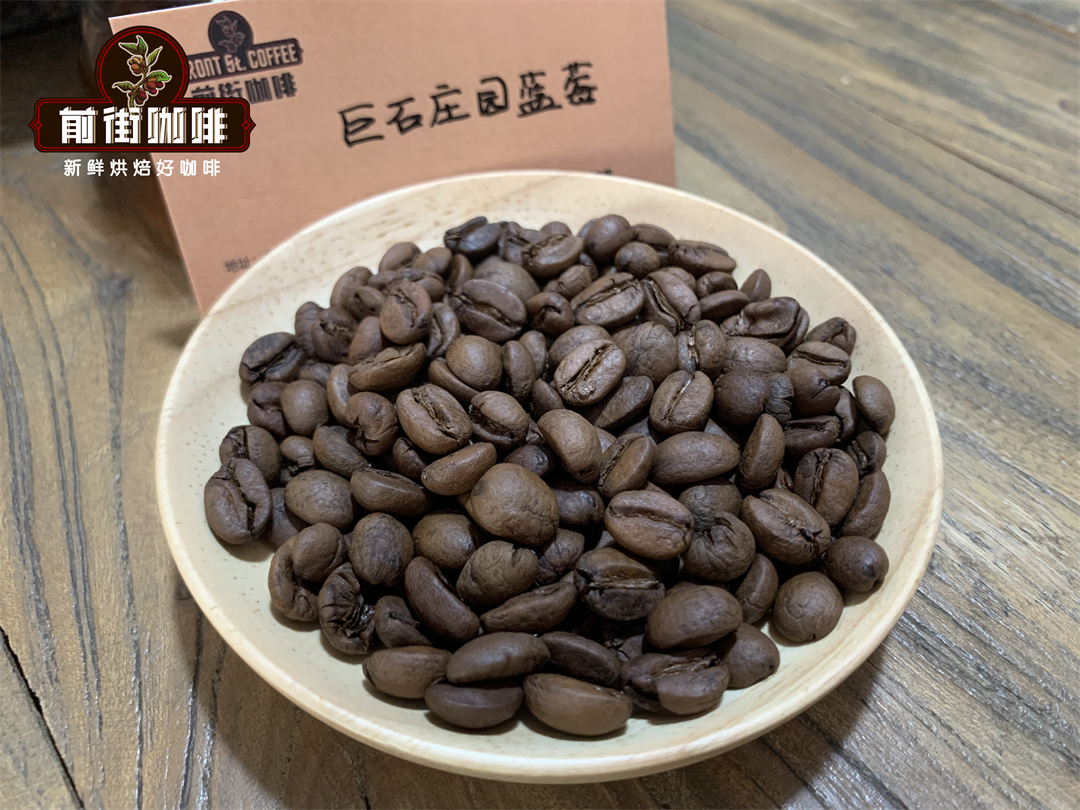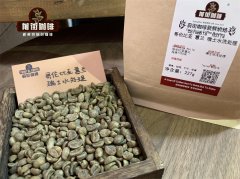What are the conditions for growing coffee varieties? Do political factors affect coffee varieties?
Have you ever understood and calculated the approximate cost of growing coffee? How do coffee farmers decide what kind of coffee beans they will grow on the farm to achieve their maximum economic benefits? Is it possible for them to grow any kind of coffee they want, or is it restricted by some conditional factors?
Now Qianjie Coffee takes you to see several factors that influence farmers' decision on which kind of coffee to grow. We know that there are many varieties of coffee in the world, such as the Blue Mountain Coffee provided by Qianjie Coffee is iron pickup, Mantenin Coffee is ateng, Panamanian Coffee is Rosa Coffee, and there are so many varieties of coffee in the world, how do farmers choose which one to grow?
In the coffee world, there are two basic families: Arabica Coffee and Robusta Coffee. If you are sitting in a specialty coffee shop, you may be drinking Arabica coffee. However, if you drink some espresso, it is usually a kind of robusta coffee. This is not to say that all robusta coffee is bad. On the contrary, when mixed with espresso and Arabica coffee, it can add very good cream and body to espresso. About 75% of the coffee grown in the world is Arabica coffee. Arabica coffee is famous for its wonderful flavor, which is why it is so popular, but it is more prone to a variety of diseases-especially coffee leaf rust. Robusta, on the other hand, has slightly more caffeine. It is not known for its special taste, but it does provide a higher level of disease resistance. In Vietnam, 97% of coffee is robusta coffee, the world's largest producer of robusta coffee.

1. Farm elevation
Altitude is an important factor in determining what kind of coffee to grow. The general rule is that Arabica coffee is grown between 1800 and 6300 feet, requires 1500 to 2500 millimeters of rainfall a year, and prefers a slightly cooler climate range of 15 to 24 degrees Celsius. Robusta, on the other hand, is usually grown near the equator and is happier in hot conditions such as Vietnam. Vietnam has an average annual rainfall of 1800 mm, providing beautiful growth conditions for robusta coffee, which is one of the reasons why it has become the largest producer of robusta coffee in the world.
two。 Plant price and expected return on investment
The second factor determining the variety of coffee is the commercial aspect of growing coffee. The price of the plant and the expected return on investment are obviously important factors in determining which plant to buy. Should farmers plant the cheapest and highest-yielding varieties of coffee and try to profit from the harvest from large amounts of coffee? For them, the production of growing a geisha is not close to that of Katula and requires more care, but the price is indeed higher in the international market, in some cases, as high as $350 per pound at auctions. would that be better for them? In the years before the plants were still growing and not producing, how much cash did farmers have to run the farm? Should he choose a variety like Tekisic, which begins to produce its first fruit after only a year underground?
The answer to all these questions actually depends on the situation of each farmer and the details of his plantation. As the boutique coffee market continues to develop and enter new countries and markets, the demand for high-quality coffee will continue to increase, and the need for farmers to predict this demand and adapt accordingly will be the key for them to maintain their ability.
3. Political factors will affect the plant choices of local coffee farmers.
In foreign countries, the plant choices of many farmers are often influenced by the internal political situation of a country. Many mayors or presidential candidates often donate hundreds of thousands of plants in their cities to win votes because a large number of farmers can be found in their departments. In a sense, this is good for farmers, who have lower planting costs and free voting fees, but do not always consider what kind of plants they provide to voters. In addition, producers who have been taking care of coffee seedlings in the nursery have been hurt as the increase in the supply of free plants on the market has depressed the demand and prices of nursery plants, which have adapted plants to the areas to be planted. The corresponding decline of each plant
Direct trade coffee buyers and coffee lovers have great opportunities to work with farmers and educate them on what kind of coffee to grow according to current market trends and what is best to produce in their area according to the climate and altitude of their farms. In addition, work with farmers to establish their own coffee nurseries where they can germinate, bag saplings and sell their own coffee plants, helping to ensure future planting costs and sustainable practices. These simple practices not only help farmers maximize their return on investment, but also enable us to benefit from the promise of better quality coffee.
Important Notice :
前街咖啡 FrontStreet Coffee has moved to new addredd:
FrontStreet Coffee Address: 315,Donghua East Road,GuangZhou
Tel:020 38364473
- Prev

Changes in the Colombia Fine Coffee Industry Exploring the Origins of Colombia Coffee
Have you ever heard of a coffee name as well-known as Juan Valdez? Juan valdez, however, isn't even real. He was a fictional character invented in the 1950s by the marketing team of Fedecaf, the national coffee association in Colombia. At one time, however, coffee was an exotic crop that colonized the land of Colombia. Centuries of adaptation, innovation and alignment
- Next

What are the differences between decaf coffee and decaf coffee varieties?
Coffee, people love and hate, why say this, how can hate it, the reason is too much love leads to too much, so caffeine content in the body is also very large, for those who are now pursuing health, can only drink less to control this defect, so they are more willing to pursue decaf coffee. Consumers believe they should reduce caffeine intake. Decaf coffee is natural.
Related
- What brand of black coffee is the most authentic and delicious? what are the characteristics of the flavor of the authentic Rose Summer Black Coffee?
- Introduction to the principle and characteristics of the correct use of mocha pot A detailed course of mocha pot brewing coffee is described in five steps.
- Which is better, decaf or regular coffee? how is decaf made?
- How much is a bag of four cat coffee?
- How about four Cat Coffee or Nestle Coffee? why is it a cheap scam?
- Which is better, Yunnan four Cats Coffee or Nestle Coffee? How about cat coffee? is it a fake scam? why is it so cheap?
- How about Cat Coffee? what grade is a hoax? which instant coffee tastes better, four Cat Coffee, Nestle Coffee or G7 coffee?
- Process flow chart of coffee making-Starbucks coffee making process what coffee tastes good at Starbucks
- The top ten best coffee beans in the world Rose summer coffee or Tanzanian coffee tastes good
- Yunnan four cat coffee is good to drink?_four cat coffee is a big brand? four cat blue mountain coffee is fake?

